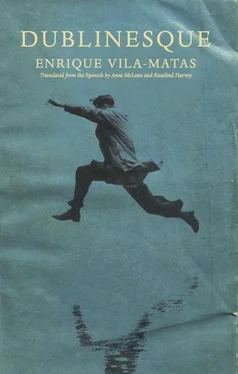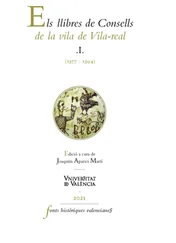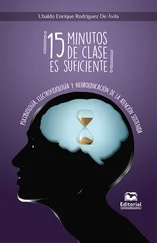Maybe he wants to go to Dublin for all these reasons and also for others that escape him and will go on escaping him forever.
Why do I want to go to Dublin?
He asks himself silently twice in a row. It’s possible there is an answer to this question, but also possible that he may never find out exactly what it is.
And it is even possible that the very fact of not knowing the reasons he is going to Dublin in their entirety forms part of the meaning of the journey, in the same way that still not knowing the exact number of words of his requiem may help him to deliver a good eulogy in Dublin.
He will go to Dublin.
The following morning, an hour after waking up and with her time already minutely planned out, Celia is getting ready to go to her office at the museum where she works. Her face radiates peace, serenity, tranquility. It might be that these are a consequence of her imminent conversion to Buddhism.
Celia always goes about things enthusiastically, with enviable drive. She appears helpless and at the same time possesses a frightening strength — both extremes are necessary. Occasionally, he is reminded of what his grandfather Jacobo used to say: “Nothing important was ever achieved without enthusiasm!” Celia is enthusiasm itself and always has an air of giving importance to what she does, whatever it might be, and at the same time of denying all this importance with a simple smile. She says she learned all this from the Oklahoma Theater, that theater whose stage, according to her, was directly connected to the void.
Oklahoma and Celia seem to be inseparable. Buddha will be the third side to the triangle. Celia often says there is no better place for enthusiasm than the United States. And that life there — she once went to Chicago — is pure theater to her, permanently connected to the void. But she wouldn’t mind going to live in New York if he would only stop obsessing about it and finally decide to move to that place he so yearns for, to the supposed center of the world.
Celia is going to work, but first she drops a hint by means of a terrifying piece of information. Sensing that it won’t be long before her dear autistic husband goes and sits in front of the computer, she tells him that people who regularly use Google gradually lose the ability to read literary works with any kind of depth, which serves to demonstrate how digital knowledge can be linked to the recent stupidity in the world.
Riba accepts the dig, but prefers not to take it personally. When she leaves, he has his first cappuccino of the morning. Really, coffee was devised as a way of concentrating better on the internet, he thinks. Over the last two years, in the absence of alcohol, coffee has been his only stimulant. Today he drinks it faster than ever, at top speed: standing up in the kitchen, gloriously anxious. Then, in an almost desperate attempt not to let a single effect of the caffeine escape, he turns his back on Celia’s words and seats himself at the computer.
For a moment, he considers not spending as many hours as usual in front of the screen, not exactly because of what Celia said, although this has a strong influence, but rather because he has been telling himself for some time now he should set himself life challenges far removed from his recent obsessive tendency to sit motionless at the computer. But he immediately changes his mind. Being almost sixty years old he doesn’t really have any ideas for life challenges. So eventually he decides to delve once more into the internet, where he is unable ever to avoid giving free rein to a certain narcissism by typing into Google first his name, and then that of the publishing house. He knows that, aside from being egocentric, all of this is clearly obsessive. But even so, he doesn’t want to give up this daily habit. The flesh is weak.
This obsessive activity in fact serves to soothe his nostalgia for the time when he used to go to his office and, with his secretary Gauger, inspect every mention in the press about the books they published. He knows that, as a substitute for what he used to do in his office, his current mania is verging on the grotesque, but he feels it is necessary for his mental health. He looks at lots of blogs to find out what they are saying about the books he published. And if he comes across someone who has written something even slightly unpleasant, he writes an anonymous post calling the author ignorant or an idiot.
Today he spends a long time doing this activity and ends up insulting a guy from Barcelona who says on his blog that he took a Paul Auster book on holiday to Tokyo and feels disappointed. What a bastard this blogger is! Riba only published The Invention of Solitude by Auster, and although the book the tourist is putting down is The Brooklyn Follies , he feels just as affronted by this mistreatment of Auster, whom he considers a friend. When he finishes insulting the blogger, he feels more refreshed than ever. Recently he has been so very sensitive and had such low morale that he thinks if he had overlooked this unjust comment on Auster’s book he would have become even more depressed than he was before.
•
He interrupts the hypnotic state the computer has lulled him into for yet another day and stands up. He goes over to the big window for a few moments and from there looks out at the great view over the city of Barcelona, not as fantastic today as it usually is, due to the alarmingly persistent rain. In fact, the whole city has disappeared from his window, disappeared behind a heavy curtain of water. May rain, although a little excessive for this time of year. It is as if up there, in the clouds, someone has begun to collaborate on Dominique’s future installation in the Tate Modern in London.
He senses that this short journey over to the window, this modest, fleeting liberation from the digital world, will turn out to be beneficial. Right away, standing here, even though he’s facing the disappeared view of Barcelona, his hikikomori guilt has diminished. And he starts to see that Celia’s words as she left today are having quite an effect on him. In general, he barely takes a break from the computer until she gets home at a quarter to three. Today he makes an exception and devotes part of his time to standing there in front of the window from which, nevertheless, he can see nothing. Perhaps he hasn’t picked the best moment. What is certain is that today there is nothing to see, except the rubbed-out city and the mist. He stays there for a while, listening to the almost religious, monotonous murmur of the rain. He somewhat loses track of time.
He hardly ever sets foot on the streets of Barcelona. Recently, he merely contemplates the city from up here, but today, with the rain and the mist, he can’t even do this. To think that he used to have a busy social life. Now he has become down in the mouth, melancholy, shy — more than he ever thought — shut up between these four walls. A good drink would liberate him from feeling so misanthropic and timid. But it’s not worth his while because it would endanger his health. He wonders if there is a pub called the Coxwold in Dublin. Deep down he has a burning desire to break his own internal rules and have a good slug of whiskey. But he won’t do it, he knows better. He is convinced that Celia would be capable of leaving him if she saw he was drinking again. She wouldn’t stand for a return to the days of the great alcoholic nightmare.
He won’t have even one drink, he’ll endure stoically. Nevertheless, there’s not a day when he’s not seized by an indefinable nostalgia for bygone evenings, when he used to go out to dinner with his authors. Unforgettable dinners with Hrabal, Amis, Michon. . Writers are such great drinkers.
He leaves the window and goes back to the computer and googles the words Coxwold pub Dublin . It’s a way like any other to make him believe he is quenching his great thirst. He searches and soon sees there’s no pub with this name there, and again feels like going into one for real. Again, he is holding back. He goes to the kitchen and drinks two glasses of water one after the other. There, by the fridge, suddenly leaning on it, he remembers how he sometimes imagines — only imagines — that, instead of spending all his time shut up in the house, a computer addict, he is a man open to the world and to the city at his feet. It is then he imagines he is not a retired, reclusive publisher and a perfect computer nerd, but a man of the world, one of those guys from 1950s Hollywood movies his father wanted so much to resemble, and did. A sort of Clark Gable or Gary Cooper. That kind of very sociable man who used to be called an “extrovert” and who was friends with hotel porters, waitresses, bank clerks, fruit sellers, taxi drivers, truck drivers, and hairdressers. One of those admirable, uninhibited, really open guys who are constantly reminding us that life is essentially wonderful and should be approached with pure enthusiasm, as there’s no better remedy against terrible anguish, such a European disorder.
Читать дальше












